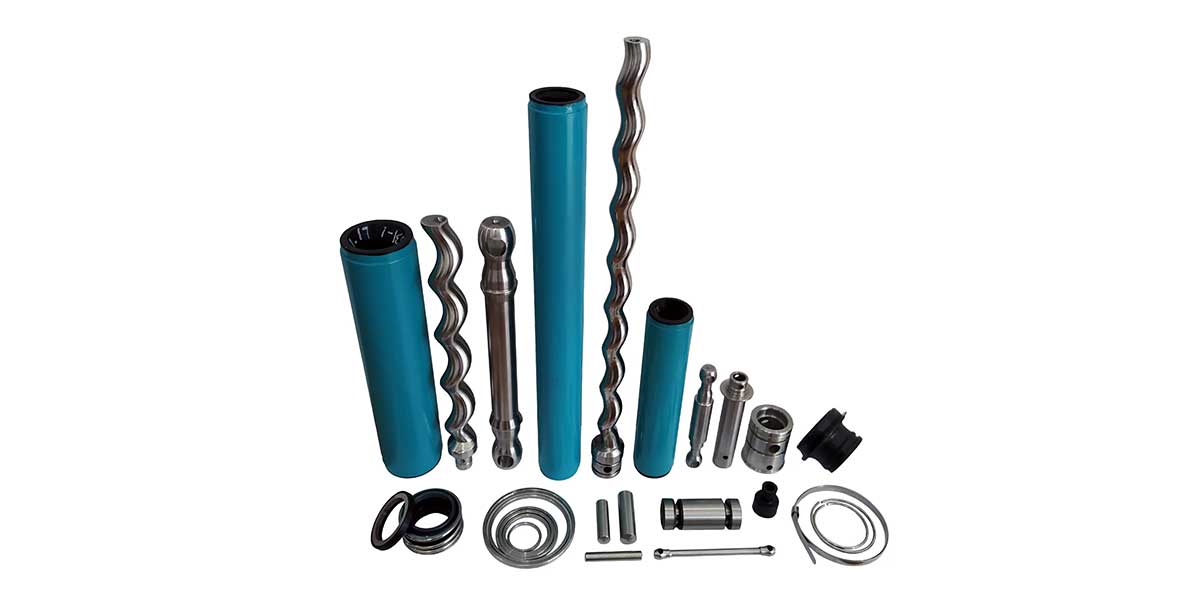Twin-Screw Pumps from buzai232's blog
Twin-Screw Pumps
Bornemann Twin-Screw Pumps are self-priming, double ended positive displacement pumps with external timing gears and bearings. Manufactured in over 80 sizes, their design provides complete axial balancing of the rotating elements and eliminates all metal-to-metal contact within the pump.To get more news about MONO pump Accessories, you can visit hw-screwpump.com official website.
They can handle virtually any non-homogeneous fluid, regardless of viscosity, lubricity or abrasiveness e. g. seawater, bitumen, molasses, lime, acid, caustic solution or hydrocarbon.
Principle
While pumping there is no metal-to-metal contact within the pump housing. This allows good pumping performance even with non-lubricating and corrosive and contaminated fluids.

As the pump rotates, the intermeshing of the two screws along with the pump housing form chambers. These chambers fill with the pumped fluid and move it from the suction side of the pump to the higher pressure discharge side of the pump.
The pump is designed to allow for reverse flow by simply changing the shaft direction. The suction becomes the dis-charge and vice versa, all without any modifications to the pump
When shouldn’t you use a Twin Screw Pump?
So why not use a twin screw? About 10 years ago when twin screw pumps burst onto the sanitary pump scene, there were a few folks who only sold twin screws and did a really good job of making every application a twin screw application. Pumping Greek Yogurt? Twin screw. Mayonnaise? Twin Screw. Beer? Twin Screw. A product you’ve been handling for 20 years with an ECP pump without issue? Twin screw. You get the idea- every application between a twin screw pump application.
The reality is, twin screw pump technology, while robust and versatile, isn’t for every application. They cannot be piped inline and twin screw pumps have a large footprint. When used in high turndown applications, twin screw pumps require exceptionally large motors.
Twin screw pumps are also much more complex to service and there is less familiarity with twin screw technology among maintenance personnel than with other, more established technologies. Screws must be properly matched and timed, often requiring special training of maintenance teams. Accordingly, we don’t recommend twin screw for clean out of place applications.
Cost is also a key consideration, with twin screws costing up to 50% more than comparably sized ECP type pumps. This carries through to parts, which has a great impact on total cost of ownership. As we mentioned above, one of the reasons we love twin screw technology is it allows us to do two duties- process and CIP- with one pump. Not only does it make piping easier, it also helps make the economics work.
Post
| By | buzai232 |
| Added | Dec 14 '22, 09:39PM |
Tags
Rate
Archives
- All
- December 2017
- November 2017
- October 2017
- September 2017
- June 2017
- May 2017
- December 2018
- November 2018
- October 2018
- September 2018
- August 2018
- July 2018
- June 2018
- May 2018
- April 2018
- March 2018
- January 2018
- December 2019
- November 2019
- October 2019
- September 2019
- August 2019
- July 2019
- June 2019
- May 2019
- April 2019
- March 2019
- January 2019
- December 2020
- November 2020
- October 2020
- September 2020
- August 2020
- July 2020
- June 2020
- May 2020
- April 2020
- March 2020
- January 2020
- December 2021
- November 2021
- October 2021
- September 2021
- August 2021
- July 2021
- June 2021
- May 2021
- April 2021
- March 2021
- February 2021
- January 2021
- December 2022
- November 2022
- October 2022
- September 2022
- August 2022
- July 2022
- June 2022
- May 2022
- April 2022
- March 2022
- February 2022
- January 2022
- December 2023
- November 2023
- October 2023
- September 2023
- August 2023
- July 2023
- June 2023
- May 2023
- April 2023
- March 2023
- February 2023
- January 2023
- December 2024
- November 2024
- October 2024
- September 2024
- April 2024
- December 2025
- November 2025
- October 2025
- September 2025
- August 2025
- July 2025
- June 2025
- May 2025
- April 2025
- March 2025
- February 2025
- January 2025
The Wall